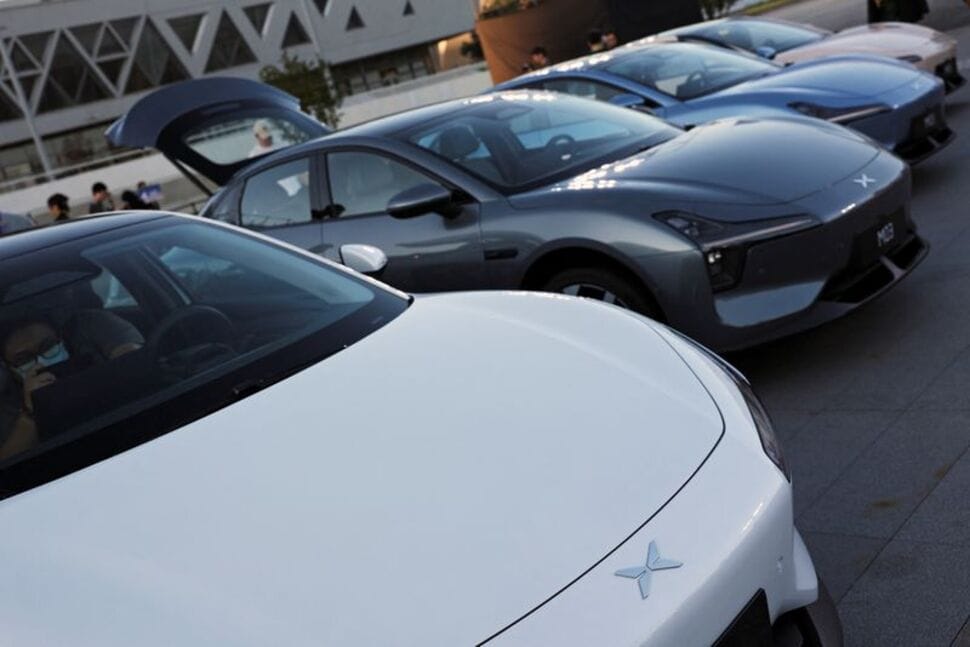Xpeng Unveils Extended-Range Hybrid Tech to Drive Sales Growth and Boost Profitability
Xpeng launches new extended-range hybrid technology to boost EV sales, offering cost-effective solutions globally.

Xpeng Unveils Game-Changing Extended-Range Hybrid Technology to Boost Sales
Chinese electric vehicle (EV) maker Xpeng is betting on the future of hybrid technology to expand its market reach and drive sales growth. In a move that sets it apart from traditional pure electric vehicles (EVs), the company introduced its “Kunpeng Super Electric System”, a groundbreaking extended-range hybrid (EREV) technology. This innovation is designed to offer cost-effective solutions while addressing the challenges of infrastructure in global markets.
The Promise of Xpeng’s Extended-Range Hybrid System
Xpeng’s new system allows its vehicles to drive more than 1,400 kilometers on a single charge, with an internal combustion engine (ICE) stepping in to recharge the battery when it’s depleted. This hybrid approach aims to combine the best of both worlds—electric propulsion for clean energy and a backup combustion engine to ensure long-range driving. He Xiaopeng, the founder of Xpeng, discussed the system during a livestream event in Guangzhou, emphasizing the need for new energy solutions that cater to global market conditions.
"Power grid infrastructure in many countries is still underdeveloped compared to China, so we need innovative charging solutions," said He Xiaopeng. "This extended-range hybrid will address those challenges and open up new opportunities for us in markets with less EV charging infrastructure."
Why Extended-Range Hybrids?
Following in the footsteps of Chinese rival Li Auto, which has been pioneering extended-range electric vehicles (EREVs), Xpeng sees the hybrid technology as a solution to some of the current challenges in the global EV market. The key advantage of an EREV is its ability to use fewer batteries—often one of the most expensive components of an EV—making it a more cost-competitive option for consumers.
Other automakers like Nio are also working on similar hybrid models, planning to sell them primarily in overseas markets, including Europe, the Middle East, and North Africa. In fact, in October, CATL, a leading battery giant, introduced its first battery designed specifically for extended-range hybrids, reflecting the growing demand for such vehicles.
Boosting Sales in Global Markets
Xpeng’s move to embrace EREV technology is strategic, particularly in international markets where the charging infrastructure for electric cars is less developed. In Europe, for instance, the ratio of electric vehicles to charging poles remains disproportionately high, with 16 EVs sharing a single charging station. In China, the ratio is far better—just 2.5 EVs per charging pole.
The growing demand for EREVs is not only a response to infrastructure challenges but also a way to lower the overall cost per vehicle. This makes EVs more affordable for consumers in regions where traditional charging infrastructure may lag behind.
Xpeng’s Expanding Technological Horizons
Xpeng is also pushing the envelope in other areas of innovation. The company introduced its self-developed artificial intelligence (AI) chip for autonomous driving and showcased several futuristic concepts, including a humanoid robot and even a flying car prototype.
Additionally, Xpeng announced it would be rolling out the latest version of its advanced assisted driving system to users later this month. The update will improve the system’s performance in autonomous lane changing and parking, marking another leap in Xpeng’s ambitious plans to dominate the smart EV and autonomous driving markets.
Looking Ahead: Xpeng’s Future in the EV Market
With the launch of its extended-range hybrid technology, Xpeng is positioning itself as a major player in the global EV market. The company’s approach to hybrid vehicles—coupled with its cutting-edge AI and autonomous driving technology—signals that it’s not just adapting to the needs of today’s market, but also shaping the future of transportation.
As Xpeng looks to scale its offerings and expand its reach in both domestic and international markets, the adoption of extended-range hybrids could provide a critical boost to its sales and profitability, especially in markets where EV infrastructure remains a challenge.
